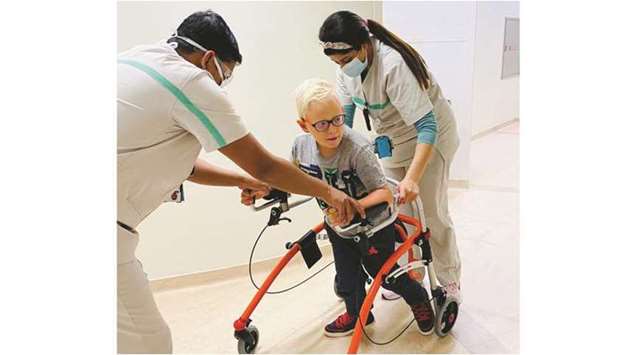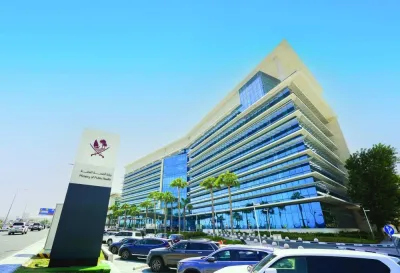Sidra Medicine has established Qatar’s first paediatric focused Movement Disorders Clinic.
The facility helps address problems such as spasticity and dystonia in children and young people who have not responded to medications and therapy and who may benefit from the surgical interventions.
The Movement Disorders Clinic is staffed by a team of specialists from rehabilitation medicine, physical and occupational therapy, neurology, and neurosurgery. The most common diagnosis seen at the clinic are children with Cerebral Palsy, a brain disorder that interferes with the way that the brain communicates with the body and causes difficulty with movement.
Dr Lisa Thornton, division chief, Rehabilitation Medicine at Sidra Medicine said, “Sidra Medicine is one of the very few hospitals in the world with the specialist expertise to offer comprehensive care for children with Cerebral Palsy or Dystonia, including neurosurgery, neurology, inpatient and outpatient rehabilitation and orthopaedic surgery. While these brain conditions are incurable, our combined effort is to ensure that we are improving the quality of life for the patients and their families.”
Dr Ian Pople, division chief of Neurosurgery at Sidra Medicine said, “Our first case at the Movement Disorders Clinic was eight year old Aiden, who underwent a Selective Dorsal Rhizotomy (SDR) procedure to help address his spasticity. The nerves causing the most stiffness were cut during this unique surgery. SDR has been shown to reduce the number of additional orthopaedic surgeries needed over the course of a child’s life. In most cases, spasticity doesn’t return.”
The SDR performed on Aiden at Sidra Medicine, was highly specialised and is considered possibly the first of its type in the region for the improvement of mobility in a pediatric patient with Cerebral Palsy.
Aiden's Cerebral Palsy causes spasticity that leads to leg stiffness and interferes with his ability to walk, causing him to use a wheelchair for mobility.
Aiden’s parents sought to find the best care possible for their son, and tried a number of different therapies including stem cell therapy in the US, before seeking a treatment programme at Sidra Medicine in 2017.
Aiden was referred to Sidra Medicine’s Rehabilitation Medicine department to help with his spasticity issues. After consultation with experts at the Movement Disorders Clinic, it was decided that he would benefit from SDR surgery.
SDR is a spinal surgery usually performed on children with spastic Cerebral Palsy, especially those who have not responded to therapy and medications. SDR can improve mobility, reduce pain and relieve lower limb spasticity.
Aiden’s parents said, “Our goal has always been to ensure that Aiden receives the best possible care. We have researched and travelled extensively always keeping up to date on the latest procedures so that Aiden can achieve some level of independence despite his cerebral palsy.”
Aiden’s surgery took six hours and involved a team of two surgeons, a neurologist and two neurophysiologists who monitored Aiden’s spinal cord function during the surgery. Together they determined which nerves were causing the most spasticity and carefully sectioned those sensory nerves to reduce the spasticity in his legs.
After the surgery, Aiden stayed at Sidra Medicine for nearly three weeks to begin rigourous rehabilitation that he will continue as an outpatient for up to one year. His parents are also committed to helping him perform a home-based, daily therapy programme. Following his intensive post-operative care, Aiden’s parents have seen easier movements in his legs, with his strength improving by the day.



